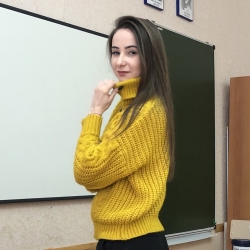
CONDITIONALS

ZERO CONDITIONAL
If you don’t water flowers, they die .
If you have a headache, stop watching TV.
If clause: PRESENT SIMPLE
Main clause: PRESENT SIMPLE
With zero conditional
we express a general truth ( scientific facts) or we give advice .

Plants die if they don't get enough water.
If you mix red and blue, you get purple.

FIRST CONDITIONAL
If the weather is nice, we will go for a walk.
If you don’t apologize , she will never trust you again.
If clause: PRESENT SIMPLE
Main clause: FUTURE SIMPLE
The first conditional refers to the present and future . It expresses a possible condition and its probable result in the future .

SECOND CONDITIONAL
If I had a lot of money, I would buy a big house.
If I knew his number, I would phone him.
if-clause: PAST SIMPLE
main clause: would + infinitive
The second conditional refers to the present and future .
It expresses an unreal situation and its probable result.
The situation or condition is improbable, impossible,
imaginary , or contrary to known facts.

SECOND CONDITIONAL
Jack wants to buy a house but he can’t do this because he doesn’t have any money.
If I had a lot of money, I would buy a big house.

SECOND CONDITIONAL
Susan wants to phone Paul but she can’t do this because she doesn’t know his number.
If I knew his number, I would phone him.

FIRST v. SECOND CONDITIONAL
If John runs fast, he will win the race.
This is still possible to happen.
If John ran fast, he would win the race.
This is unlikely to happen because John d id n’t run fast.
THE DIFFERENCE: FIRST and SECOND CONDITIONAL
Both conditionals refer to the present and future . The difference is about probability , not time .
First conditional: real and possible situations
Second conditional: unlikely to happen

THIRD CONDITIONAL
If I had had a lot of money, I would have bought a big house.
If I had known his number, I would have phoned him.
if-clause: PAST PERFECT
main clause: would + have + V3
The third conditional refers to the past and
it is not based on facts . It expresses the situation
which is contrary to reality in the past.

THIRD CONDITIONAL
Jack wanted to buy a house last year but he couldn’t do that because he didn’t have any money.
If I had had a lot of money, I would have bought a big house.

THIRD CONDITIONAL
Yesterday , Susan wanted to phone Paul but she couldn’t do that because she didn’t know his number.
If I had known his number, I would have phoned him.

SECOND v. THIRD CONDITIONAL
If I saw a car accident, I would call an ambulance .
But I don’t see an accident now. This is unlikely to happen .
If I had seen a car accident, I would have call ed an ambulance .
But I didn’t see an accident yesterday. This is contrary to the fact in the past.
THE DIFFERENCE: SECOND and THIRD CONDITIONAL
The difference is about time .
Second conditional: refers to the present and future Third conditional: refers to the past situations

ALL CONDITIONALS
0. If he drive s carefully, he avoid s the accident.
General time reference.
1. If he drive s carefully, he will a void the accident tomorrow .
This is still possible to happen.
2. If he dr ove carefully, he would a void the accident today .
But he doesn’t drive carefully. This is unlikely to happen.
3. If he had driven carefully, he would have a void ed the accident yesterday .
But he didn’t drive carefully, so he didn’t avoid the accident.

MIXED CONDITIONALS
There are two types of mixed conditionals:
If clause:
Second Conditional
Main clause: Third Conditional
1.
If clause:
Main clause:
Third Conditional
Second Conditional
2.

If+Second Conditional / Third Conditional
- If I were clever enough, I wouldn’t have done this. (Будь я достаточно умен, я бы этого не сделал)
If clause:
Main clause:
If I were clever enough
справедливо и для настоящего
I wouldn’t have done this
не соответствуют реальному прошлому

If+Third Conditional / Second Conditional
- If I had won that lottery, I would now live in France . ( Если бы я выиграл в той лотерее, я бы сейчас жил во Франции
If clause:
If I had won that lottery
несостоявшееся прошлое
Main clause:
I would now live in France
относится к настоящему времени


Inverted Conditionals
Inverted Conditionals – First Conditional
- If she perseveres in learning English, she will be able to get that job.
- Should she persevere in learning English, she will be able to get that job .

Inverted Conditionals
Inverted Conditionals – Second Conditional
- If I won a million dollars, I would set up my own company.
- Were I to win a million dollars, I would set up my own company.

Inverted Conditionals
Inverted Conditionals – Third Conditional
- If you had left home earlier, you wouldn’t have missed the train.
- Had you left home earlier, you wouldn’t have missed the train.





































